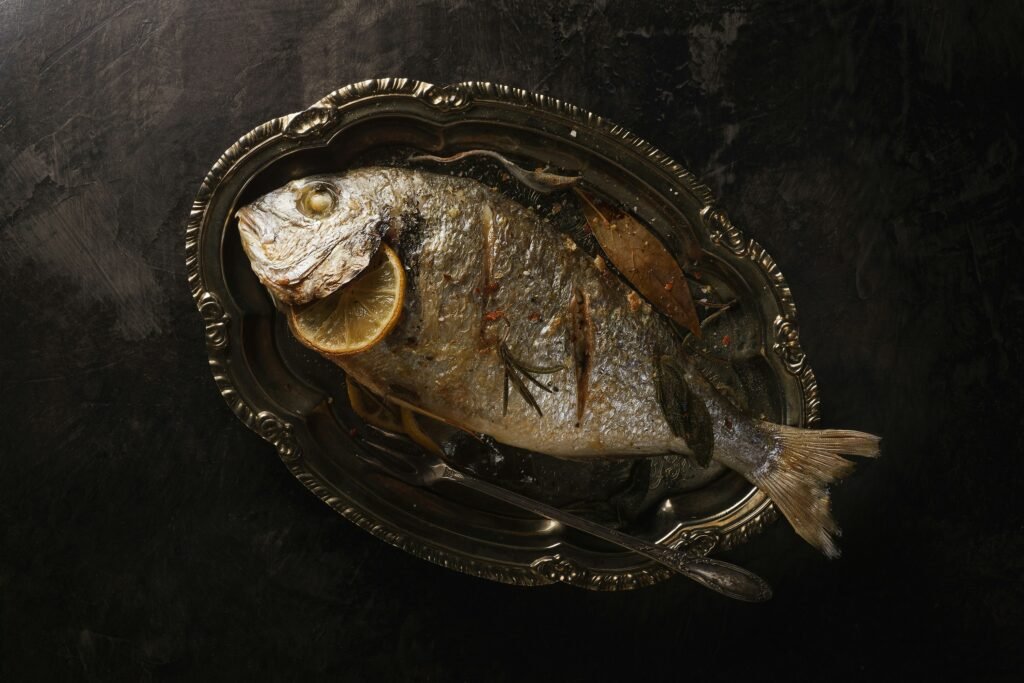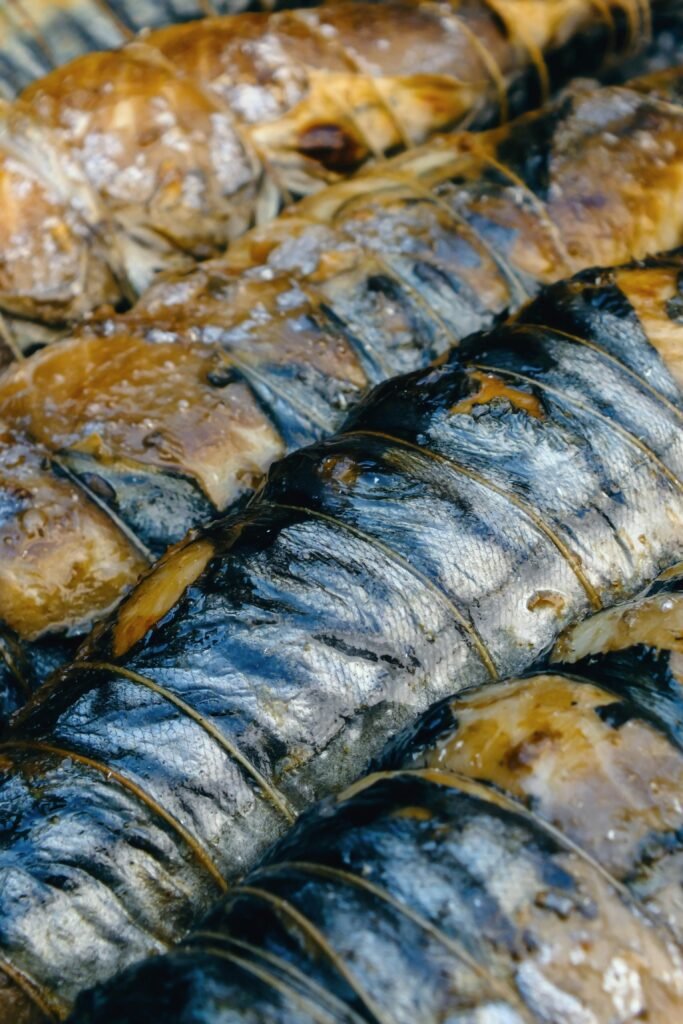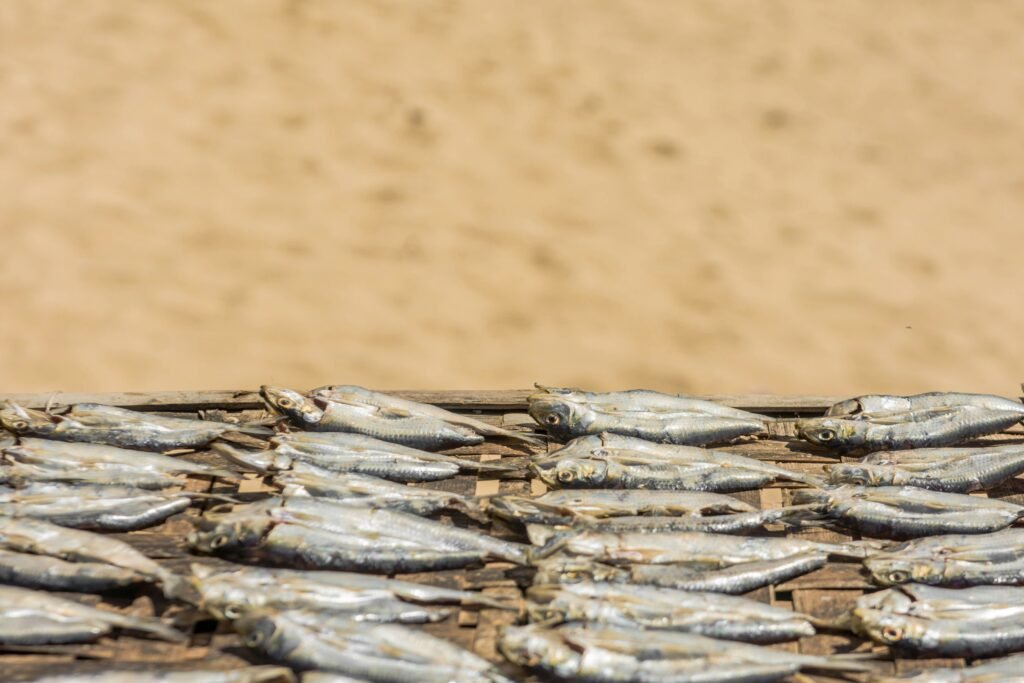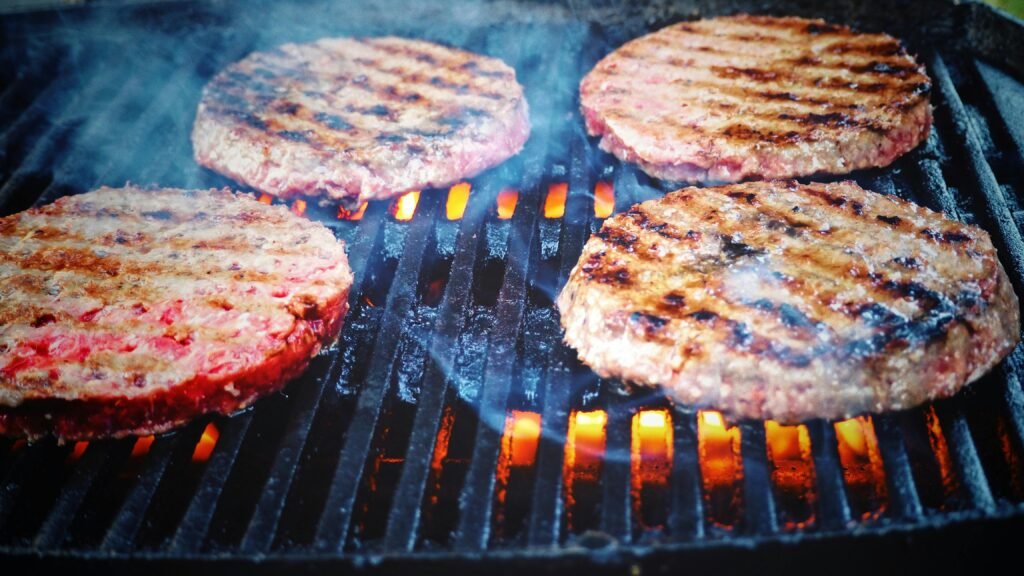Have you ever smelled the enticing aroma of smoked fish wafting from a barbecue and wondered about the secrets of creating such culinary magic? There’s something about that smoky flavor mingled with the natural freshness of fish that makes our taste buds rejoice and our mouths water in anticipation. Let’s unravel this flavorful journey together.

This image is property of images.unsplash.com.
Understanding the Art of Smoking Fish
Smoking fish isn’t just about tossing it onto a grill and waiting for the magic to happen. Oh no, it’s a culinary art form that weaves together science, technique, and a little bit of patience to transform humble fish into something divine. It can be a labor of love that rewards us with rich flavors and delicious textures.
The Origins of Smoking Fish
Long before refrigerators and freezers became kitchen staples, smoking was a pioneering method of preserving food. Travels back to the times when our ancestors relied on these techniques to keep their catches fresh for longer. While we’ve come a long way in terms of food preservation, the age-old technique of smoking grants us not just nostalgia but a delightful depth of flavor that’s hard to beat.
Why Smoke Fish?
Aside from tradition, one of the primary reasons we smoke fish is to enhance its flavor. Smoking imparts a depth of richness while infusing the fish with a complex flavor profile that simply cooking or grilling just doesn’t provide. Plus, it gives a wonderful texture surface that ranges from silky to flaky, depending on how it’s done.
The beautiful irony of smoking fish is that while it’s steeped in age-old tradition, it’s still one of the trendiest ways to impress guests at a gathering. We’ve been particularly fond of pulling out a smoked salmon appetizer or a smoked trout salad at our dinner parties.
Types of Fish Best for Smoking
Choosing the right fish is an essential step in our smoked fish journey. Some types of fish hold their own beautifully under the smoky cure, developing flavors that are profound and deeply satisfying.
Popular Choices for Smoking
- Salmon – A go-to for many of us due to its rich taste and high-fat content, which means it absorbs smoke well.
- Trout – With a tenderness that complements the smoking process, it’s perfect for a melt-in-the-mouth delight.
- Mackerel – Its oily texture makes it a perfect candidate for smoking, yielding intense flavors.
- Cod – Surprising to some, but its mildness works as a great canvas for smoke.
- Haddock – Often used in smoked fish dishes like kedgeree.
Essential Qualities in Smoking Fish
Not just any fish will do; we need to consider a few intrinsic qualities:
- Fat Content: Fattier fish like salmon and mackerel absorb the smoke flavor better and have a juicier texture.
- Bone Content: We look for fish that are easy to fillet, as this allows the smoke to penetrate more evenly.
- Freshness: Always start with the freshest catch to ensure the best flavor profile and safety in consumption.
Preparing Fish for Smoking
Before we even think about lighting any fires or creating any smoke, we need to prep our fish properly. Trust us, this step is just as crucial as the smoking itself.
Cleaning and Filleting
Start by giving the fish a good rinse to remove any lingering scales or slime. A filleting knife helps to prep the fish, ensuring we get rid of any bones while keeping as much flesh as possible. Remember, the more surface area exposed, the better the smoke can penetrate.
Brining: The Unsung Hero
Brining is our trusty trick for achieving that perfect flavor balance. It involves soaking the fish in a salty solution which tenderizes the flesh and helps it retain moisture during smoking.
Simple Brine Recipe:
| Ingredient | Amount |
|---|---|
| Water | 1 cup |
| Salt | 1/4 cup |
| Brown Sugar | 1/4 cup |
| Peppercorns | 1 tbsp |
| Bay Leaves (Optional) | 2 |
- Mix all ingredients until dissolved.
- Submerge the fish in the brine for 4 to 8 hours, depending on how strong you want the flavors.
This process is more crucial than you might think, as it locks in flavors and enhances the fish’s texture. You’ll thank us later when you taste that perfectly seasoned bite.
The Smoking Process
Now comes the heart of the matter—the actual act of smoking the fish. It’s here where we truly transform our fish into a gourmet masterpiece.
Hot Smoking vs. Cold Smoking
There are two primary smoking methods: hot and cold. Each offers its own unique flavor and texture.
-
Hot Smoking: Cooks the fish while smoking, typically at temperatures between 120°F to 180°F. Think of a salmon that’s flaky, cooked, and ready to eat immediately.
-
Cold Smoking: Does not cook the fish; instead, it infuses it with flavor over a prolonged period at temperatures below 80°F. This method produces delicacies like traditional lox that need further cooking before eating.
Equipment We Need
We don’t need to break the bank to smoking fish. With a few basic components, we’re ready to go.
- Smoker: Large or small, electric or charcoal, pick one based on your preference and space.
- Wood Chips: Alder, apple, or hickory are favorites for their flavors.
- Thermometer: To ensure our temperatures stay where they need to be.
- Drip Pan and Water Tray: To catch juices and prevent flare-ups.
Smoking the Fish
With our fish prepped and smoker ready, let’s get down to smoking.
- Preheat the Smoker: Aim for around 175°F if hot smoking.
- Soak the Wood Chips: This slows their burning and releases the smoke gradually.
- Place the Fish on the Grate: Skin side down, ideally spaced apart.
- Monitor the Temperature: Maintain that steady environment for even smoking.
- Timing: A thin fillet may only need 1 hour, while thicker cuts could take 2–4 hours.
Let’s pace ourselves—the true secret here is patience. Allow the smoke to work its charm, and before long, you’ll have a smoked fish that’s worth every smoky second.

This image is property of images.unsplash.com.
Recipes to Try at Home
With the basics under our belts, it’s time to bring some of our favorite recipes to life. Each offers a unique twist on how smoked fish can be incorporated into our culinary repertoire.
Smoked Salmon with Dill and Lemon
This classic pairing is simple yet satisfying, as the brininess of the salmon mingles with fresh dill and lemon’s bright tang.
Ingredients:
- 1 lb smoked salmon
- 1 lemon, thinly sliced
- A small bunch of fresh dill
- Capers (optional)
Instructions:
- Arrange the smoked salmon layers on a serving plate.
- Garnish with lemon slices and sprigs of dill.
- Add capers if desired for a salty pop.
- Serve with crackers or fresh bread.
Smoked Mackerel Salad
A refreshing take that combines smoky richness with crisp vegetables—a feast for both our eyes and taste buds.
Ingredients:
- 2 smoked mackerel fillets, flaked
- Mixed salad greens
- Cherry tomatoes, halved
- Red onion, thinly sliced
- Cucumber, diced
- Dressing: Olive oil, mustard, lemon juice, and honey whisked together
Instructions:
- Toss salad greens with tomatoes, onion, and cucumber.
- Gently fold in flaked mackerel.
- Drizzle with the dressing and serve immediately.
Smoked Fish Spread
Perfect for smearing on a bagel or as a dip for a party platter, this creamy spread brings comfort and flavor with every bite.
Ingredients:
- 8 oz smoked fish (trout or salmon), flaked
- 1/2 cup cream cheese
- 1 tbsp lemon juice
- 2 tbsp chopped chives
- Black pepper to taste
Instructions:
- In a mixing bowl, combine all ingredients until smooth.
- Adjust seasoning with pepper and lemon juice.
- Serve chilled with crackers or vegetable sticks.
Pairing Smoked Fish with Beverages
When it comes to pairing fine fish with a drink, we’re spoiled for choice. Whether you’re into wine, beer, or non-alcoholic options, there’s a match made in culinary heaven waiting for us.
Wines to Consider
The richness of smoked fish pairs wonderfully with certain wines. Think:
- Chardonnay: Its buttery texture complements salmon or mackerel beautifully.
- Riesling: Offers a crisp counterbalance to saltier, smokier flavors.
- Sauvignon Blanc: Known for its acidity, which refreshes the palate.
Beer Choices
For beer lovers, smoked fish and beer are a match made in heaven. Try these:
- Wheat Beer: Balanced and light, offering a lovely background.
- Pale Ale: Citrusy notes complement the smoked profiles.
- Stout: Dark and malty, enhancing the smoky richness.
Non-Alcoholic Delights
Not in the mood for alcohol? Don’t worry; we’ve got flavorful alternatives.
- Sparkling Water with Lemon: Refreshes and balances flavors.
- Herbal Teas: Chamomile or mint offer a soothing complement.
- Lemonade: A tangy counterpart to smoked richness.

This image is property of images.unsplash.com.
Smoked Fish: Storage and Serving Tips
Having leftover smoked fish is like finding a buried treasure in our fridge, but storing it correctly is essential to keeping it tasting fresh and delightful.
How to Store Smoked Fish
Ensuring our smoked fish stays delicious requires the right storage techniques:
- Refrigerate: Keep any leftovers in an airtight container in the fridge for up to 5 days.
- Freeze: For longer storage, wrap tightly and freeze for up to 2 months.
Serving Tips
Serving isn’t just about taste; presentation adds to the experience.
- Platters: Arrange the smoked fish with garnishes like lemon wedges and herbs for an appealing display.
- Slices: For bulkier fish like salmon, consider slicing thinly for ease of handling.
- Chilled: Cold smoked fish is best served fresh out of the fridge to maintain its delicate texture.
Conclusion
There’s a certain romanticism about smoking fish—the combination of nature, technique, and tradition wrapped up in one delightful package. We’ve journeyed together through selection, preparation, and savored the outcomes, evolving from intrigued beginners to seasoned home smokers.
The beauty of smoked fish doesn’t lie simply in eating it, but in every step leading up to that rewarding first bite. We hope that the next time you’re eagerly anticipating that smoky aroma wafting from your backyard, there’s pride mixed in with the pleasure.
So let’s light that fire, watch the smoke curl and dance, and partake in the delightful art of smoked fish, creating new traditions and flavors that linger long after the plates are emptied and the meal savored.



